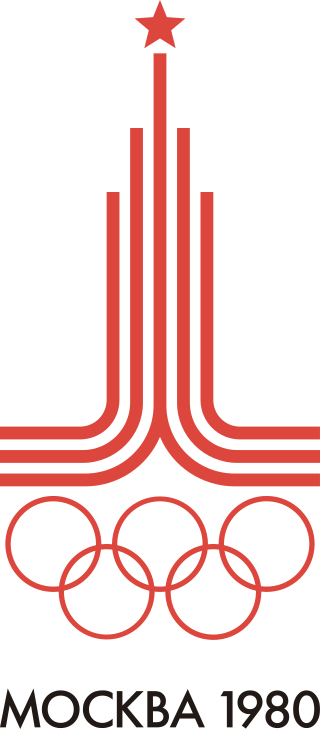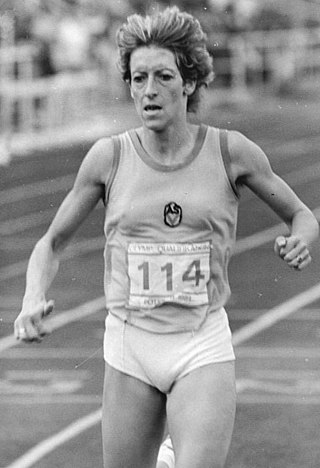
The Summer Olympic Games, also known as the Summer Olympics or the Games of the Olympiad, is a major international multi-sport event normally held once every four years. The inaugural Games took place in 1896 in Athens, Greece, and the most recent was held in 2024 in Paris, France. This was the first international multi-sport event of its kind, organized by the International Olympic Committee (IOC) founded by Pierre de Coubertin. The tradition of awarding medals began in 1904; in each Olympic event, gold medals are awarded for first place, silver medals for second place, and bronze medals for third place. The Winter Olympic Games were created out of the success of the Summer Olympic Games, which are regarded as the largest and most prestigious multi-sport international event in the world.

Larisa Semyonovna Latynina is a Soviet former artistic gymnast. Between 1956 and 1964 she won 14 individual Olympic medals and four team medals. She holds the record for the most Olympic gold medals by a female gymnast with nine. Her total of 18 Olympic medals was a record for 48 years. She held the record for individual event medals for over 52 years, winning 14. She is credited with helping to establish the Soviet Union as a dominant force in gymnastics.

The 1984 Summer Olympics were an international multi-sport event held from July 28 to August 12, 1984, in Los Angeles, California, United States. It marked the second time that Los Angeles had hosted the Games, the first being in 1932. This was the first of two consecutive Olympic Games to be held in North America with Calgary, Alberta, Canada hosting the 1988 Winter Olympics. California was the home state of the incumbent U.S. President Ronald Reagan, who officially opened the Games. These were the first Summer Olympic Games under the IOC presidency of Juan Antonio Samaranch.

The 1980 Summer Olympics, officially known as the Games of the XXII Olympiad and officially branded as Moscow 1980, were an international multi-sport event held from 19 July to 3 August 1980 in Moscow, Soviet Union, in present-day Russia. The games were the first to be staged in an Eastern Bloc country, as well as the first Olympic Games and only Summer Olympics to be held in a Slavic language-speaking country. They were also the only Summer Olympic Games to be held in a self-proclaimed communist country until the 2008 Summer Olympics held in China. These were the final Olympic Games under the IOC Presidency of Michael Morris, 3rd Baron Killanin before he was succeeded by Juan Antonio Samaranch, a Spaniard, shortly afterward.
Svetlana Aleksandrovna Masterkova is a Russian former middle-distance runner and former women's world record holder for the mile and the current 1000 metres world record. At the 1996 Summer Olympics, she won the gold medal in both the 800 metres and 1500 metres.

Lidiya Pavlovna Skoblikova is a retired Russian speed skater and coach. She represented the USSR Olympic team during the Olympic Winter Games in 1960, 1964 and 1968, and won a total of six gold medals, a record she shares with Dutch speed skater Ireen Wüst. She also won 25 gold medals at the world championships and 15 gold medals at the USSR National Championships in several distances. She was also the first athlete to earn six gold medals in the Winter Olympics and the first to earn four gold medals at a single Olympic Winter Games. She was the most successful athlete at the 1960 and 1964 Winter Olympics, sharing the honour for 1960 Games with her compatriot Yevgeny Grishin.

Marlies Göhr is a former East German track and field athlete, the winner of the 100 metres at the inaugural World Championships in 1983. She ranked in the top 10 of the 100 m world rankings for twelve straight years, ranking first in six of those years. During this time she won many medals as a sprinter at major international championships and set several world records.
Abigail Golda Hoffman, is a Canadian former track and field athlete.
Nikolina Pavlova Shtereva is a retired Bulgarian middle-distance runner who specialised in the 800 and 1500 metres. She is best known for her silver medal in 800 metres at the 1976 Summer Olympics, and at the European Indoor Championships she won gold medals in 1976 and 1979 and a bronze medal in 1981. She won fourteen national titles in Bulgaria, and is still the Bulgarian record holder in the 800 metres.

Doina Ofelia Melinte is a retired Romanian middle-distance runner. She competed at four Olympics (1980–92), and won a gold medal in the 800 metres and a silver medal in the 1,500 metres in 1984. She won the world indoor title in 1987 and 1989 and the European indoor title in 1985, 1988 and 1990 in the 1,500 m. Her world indoor mile record of 4:17.41 in 1990, stood for 26 years.

Canada has competed at every Winter Olympic Games, and has won at least one medal each time. By total medals, the country's best performance was in the 2018 Winter Olympic Games where Canadian athletes won 29 medals. Canada set a new record for most gold medals won by a country in a single Winter Olympics with 14 at the 2010 Winter Olympics in Vancouver, Canada. This achievement surpassed the previous record of 13 gold medals held by the Soviet Union (1976) and Norway (2002). Both Germany and Norway matched the record total of 14 gold medals in Pyeongchang in 2018. This record has since been surpassed by Norway with 16 at the 2022 Winter Olympics.

Tatyana Borisovna Averina was a Soviet Russian speed skater. After getting married, her name also appeared as Tatyana Barabash.

Ulrike Bruns is a retired East German athlete who competed mainly in the 1500 metres and 3000 metres.

Carmen Valero Omedes was a Spanish middle-distance runner, who was best known for representing her native country at the 1976 Summer Olympics in Montreal. Although eliminated in the heats of the 800 and the 1500 metres, Valero was the only woman in the Spanish track and field squad for the Montreal Games, and became the first female athlete to ever represent the country in those sports at the Summer Olympic Games.
Christina Tracy Boxer-Cahill is a retired female middle distance athlete from England. She represented Great Britain at three Olympic Games, in Moscow 1980, Los Angeles 1984 and Seoul 1988 and trained at Aldershot, Farnham & District AC. In Seoul, she finished fourth in the 1500 metres final. She also won a gold medal in the 1500 m at the 1982 Commonwealth Games. In 1979, she became the first British woman in history to run the 800 metres in under two-minutes.

The 800 metres at the Summer Olympics has been contested since the first edition of the multi-sport event. The men's 800 m has been present on the Olympic athletics programme since 1896. The women's event was first held in 1928, making it the first distance running event for women. However it was not held again until 1960, since when it has been a permanent fixture. It is the most prestigious 800 m race at elite level. The competition format typically has three rounds: a qualifying round, semi-final stage, and a final between eight runners.

The 1500 metres at the Summer Olympics has been contested since the first edition of the multi-sport event. The men's 1500 m has been present on the Olympic athletics programme since 1896. The women's event was not introduced until over seventy years later, but it has been a permanent fixture since it was first held in 1972. The Olympics final and the World Athletics Championships final are the most prestigious 1500 m races at an elite level. The competition format comprises three rounds: a heats stage, semi-finals, then a final typically between twelve athletes.
Tamara Aleksandrovna Sorokina is a Russian former Soviet middle-distance runner who competed in both the 800 metres and the 1500 metres. She set personal bests of 1:56.6 minutes and 3:58.89 minutes for the events, respectively.
Lyubov Smolka is a Ukrainian former track and field athlete who competed in the 1500 metres for the Soviet Union.
Svetlana Styrkina is a Belarusian former middle-distance runner for the Soviet Union. She represented her country at the 1976 Summer Olympics and was a three-time Soviet national champion.













